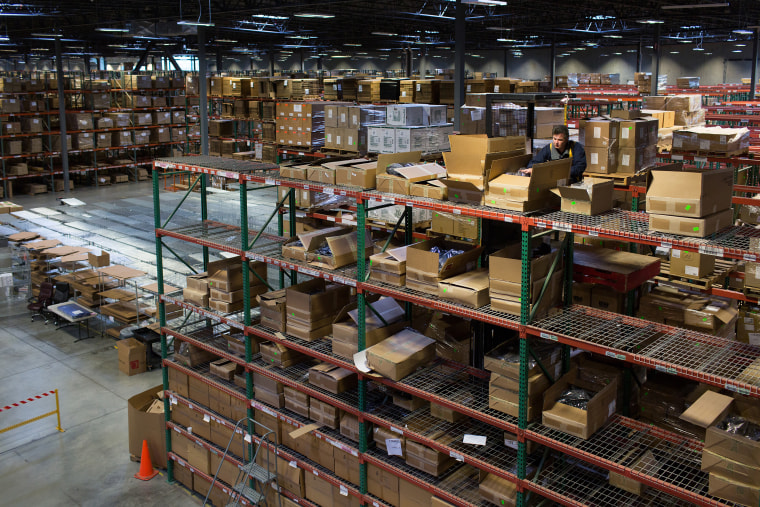WASHINGTON — The cost of online shopping seemed unlikely to change Tuesday, with the U.S. Supreme Court appearing to lean against changing the law on internet sales taxes.
Based on their comments during an hour-long courtroom argument, a bare majority of the justices appeared unwilling to overturn 50 years' worth of rulings that forbid states to impose sales taxes on whatever their residents buy from out-of-state retailers. Ending the ban would bring new revenue to the states.
"Our state is losing millions for education, health care and infrastructure, and our citizens are harmed by an uneven playing field," said Marty Jackley, the attorney general for South Dakota, defending its recently passed law imposing a tax on internet sales.
The law would exempt small businesses, but several justices said that if the court opened the door, other states might tax all sales or even make the taxes retroactive.
"Do you have any doubt that other states facing insolvency will want to grab everything they can?" asked Justice Samuel Alito.
In 1967, the Supreme Court ruled that states could not force mail-order catalog companies to collect sales taxes unless a buyer lived in a state where the company had a physical presence — a retail store, a headquarters or a distribution center, for example. The court reasoned that the volume of mail-order business was minor compared to in-store sales and that catalog companies would face too big a burden in having to figure out the correct sales tax, given widely different rates around the company.
South Dakota concluded in 2016 that the explosion in online sales changed the market drastically. So it passed a law requiring all but the smallest retailers, including internet companies, to collect taxes on the sales they make in the state, even if they had no physical presence there.
Some of the court's conservatives said overturning the earlier rulings wasn't necessary, with the internet's largest retailers already collecting sales taxes because they have a physical presence in many states.
"Some say the problem has peaked, with the bigger companies already paying the taxes. The problem is diminishing," said Chief Justice John Roberts.
Several justices also worried that the task of figuring out tax rates for 12,000 different taxing jurisdictions nationwide could push small companies out of business, even though South Dakota's Jackley said software programs now make it possible for a retailer to instantly compute the correct sales tax simply by entering a buyer's ZIP code.
Internet companies opposed to the South Dakota law also said local laws vary widely on what goods are subject to sales taxes. During back-to-school tax holidays, for example, some states exempt clothing, but others don't, and the definition of what qualifies as school supplies varies widely.
Forcing internet retailers to pay sales taxes everywhere would stifle competition and make it much harder for start-ups to get into the market, the companies say. In a friend-of-court brief, eBay said taxing internet sales would place "crushing burdens on small online businesses, causing many to curtail operations and damaging the national economy."
And besides, the companies argued, while e-commerce is growing rapidly, it still accounts for only about 9 percent of all retail sales — a smaller share than catalog companies had when the Supreme Court exempted them from paying sales taxes in states where they had no physical presence.
The companies also noted that the largest internet retailer, Amazon.com, now pays sales taxes in all the 45 states that collect them. That leaves out only Alaska, Delaware, Montana, New Hampshire and Oregon. Some local communities have sales taxes in Alaska and Montana, but they are not levied statewide.
South Dakota said that the states could pick up a combined $34 billion a year if the court allows them to tax internet sales. But the General Accounting Office estimated that the number would be at most about $13 billion.
The Supreme Court has never held that a sales or use tax can be imposed on a retailer who sells to a customer who lives in a state where the company has no physical presence.
President Donald Trump gave the issue renewed visibility when he tweeted in early April that Amazon pays "little or no taxes to state & local governments." That wasn't correct: The company has collected taxes since April 1, 2017, on sales to customers in the states that have sales taxes, even though it is not legally required to do it.
By contrast, the online store at Trump.com, the official website of the Trump Organization, collects sales taxes only for purchases made by customers in Florida, Louisiana and Virginia.
The court will decide the case by late June.
